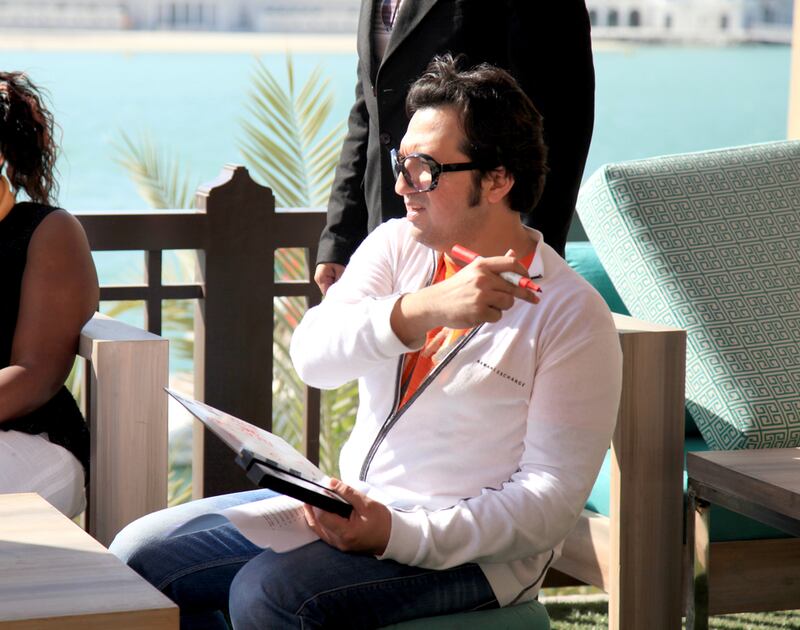At Pakistan's Hum TV Awards in Dubai on April 10, 39-year-old Faraz Waqar got a chance to shine. The Karachi-born filmmaker, who works as a marketing executive in Abu Dhabi, won Best Short Film/Video for his film 9:11 am, which was made entirely in the capital. The aspiring director tells The National about his next project and his hopes for Pakistan's struggling movie industry.
What does this victory mean to you?
Winning the award was beyond my imagination. I had seen the work of the other nominees, which was excellent. After my acceptance speech, I was literally shivering in my chair from the excitement, and called my family and the cast and crew. None of us had expected such recognition.
How did you come to be a part of the competition?
I heard about the competition on Hum TV in Dubai and was excited when I realised they were looking for new directors. I submitted three films. The one that got selected as one of the six final nominees was my graduation thesis film 9:11 am (2012). It was made entirely in Abu Dhabi – all cast and crew are residents but from various parts of the world.
What is 9:11 am about?
9:11 am is set in a high school in the Gulf, where a shooting breaks out. Since the media reports on such incidents happening in the United States, the authorities at the high school assume it's the American students at the university who are 'to blame' for this shooting. Students and authorities start discriminating against American students on the campus. So it was the reverse of the actual 9/11 situation, where everyone of Middle Eastern and Muslim origin started being looked at with suspicion after the incident happened.
You are a marketing executive by profession, but also a graduate of New York Film Academy in Abu Dhabi. How did that happen?
I have been in the UAE since 2011. I have lived in Pakistan, Saudi Arabia, Qatar and the UAE, but studied filmmaking only after coming to UAE and took a year-long sabbatical to attend the New York Film Academy. Other films I have made include Imagineer, a musical tribute to Pakistani pop music legend Nazia Hassan. It was released on the 13th anniversary of her death in 2013. Then there was Meeoww Billi Aur World War 3 (2013), which is recognised as Pakistan's first silent film. The film carries a political message about the Middle East.
Do your films have an underlying social message?
The objective of my films has always been to positively project my country and its people, and the Middle East. Pakistanis are just like the people of any other region or country, it’s just that we do not always get the right publicity. The film industry is a great way to make that happen. India’s film industry, for example, has done wonders for its image abroad.
What projects are you working on?
I have a new film that is in the editing stage. It’s my first documentary and is a satirical look at big, fat South Asian weddings and addresses the stigma attached to women who marry in their late 30s and 40s. It is set in Karachi and entirely shot there. I am also planning to start work on a feature film but at this stage, can’t say much more than I have the script ready.
Pakistani cinema is said to be undergoing a revival. Do you agree?
Pakistan was home to the 10th largest film industry in the world until the 1970s, but then the industry collapsed because of political instability. But quality scripts and new directors are now joining the industry. I am glad to be entering the industry at a time when it is going through such a revival.
artslife@thenational.ae





